 A central theme of this story by Rabindranath Tagore is the tendency to dehumanize those with disabilities. A deaf Indian girl is ostracized by her mother and most in her village. As she grows up, she finds solace in nature and love for her family’s two cows. Her father, shamed and faced with the possibility of the family becoming outcastes if she doesn’t marry, tricks a man from a distant village into an arranged marriage. Miserable and far from home, the poor girl’s fate is uncertain. Other themes include tradition, innocence, isolation and loneliness, peace in nature, shame, fear, misery. More…
A central theme of this story by Rabindranath Tagore is the tendency to dehumanize those with disabilities. A deaf Indian girl is ostracized by her mother and most in her village. As she grows up, she finds solace in nature and love for her family’s two cows. Her father, shamed and faced with the possibility of the family becoming outcastes if she doesn’t marry, tricks a man from a distant village into an arranged marriage. Miserable and far from home, the poor girl’s fate is uncertain. Other themes include tradition, innocence, isolation and loneliness, peace in nature, shame, fear, misery. More…
Archives
Kabuliwallah
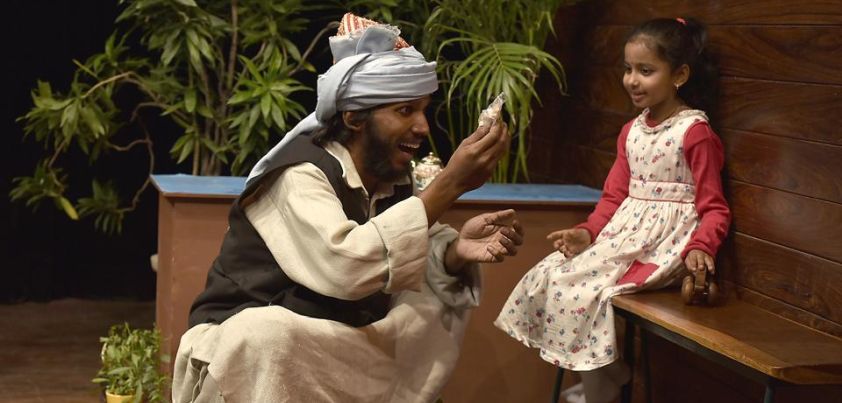 If you are a parent, this touching story by Rabindranath Tagore may well bring a tear to your eye. One of Tagore’s most popular stories, it describes an unlikely friendship between the precocious five-year-old daughter of a middle-class Bengali writer and an Afghani fruit-seller (Kabuliwallah). When the Kabuliwallah visits on the girl’s wedding day after an eight-year stint in prison, she barely acknowledges him. On learning why the fruit-seller had spent so much time with his daughter, the writer and Kabuliwallah form an instant bond. Themes: childhood innocence, friendship, growing up, change, class, prejudice, fatherly love. More…
If you are a parent, this touching story by Rabindranath Tagore may well bring a tear to your eye. One of Tagore’s most popular stories, it describes an unlikely friendship between the precocious five-year-old daughter of a middle-class Bengali writer and an Afghani fruit-seller (Kabuliwallah). When the Kabuliwallah visits on the girl’s wedding day after an eight-year stint in prison, she barely acknowledges him. On learning why the fruit-seller had spent so much time with his daughter, the writer and Kabuliwallah form an instant bond. Themes: childhood innocence, friendship, growing up, change, class, prejudice, fatherly love. More…
The Home-Coming
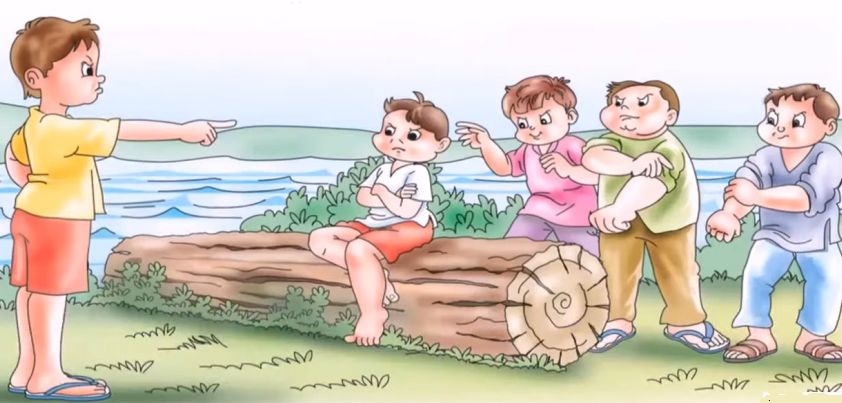 In this heartbreaking story by Rabindranath Tagore, a rebellious country teen who is always in trouble at home jumps at an offer to live with his uncle’s family in Calcutta. However, he finds city life unbearable. Made to feel unwelcome by his aunt, academically backward, and teased at school for his country ways, he yearns for the open spaces and life he had before. The boy runs away, but his journey home ends tragically. Themes include adolescent rebellion and naivety, city vs. country life, homesickness, abandonment and isolation (the need for love and a sense of belonging), reconciliation and death. More…
In this heartbreaking story by Rabindranath Tagore, a rebellious country teen who is always in trouble at home jumps at an offer to live with his uncle’s family in Calcutta. However, he finds city life unbearable. Made to feel unwelcome by his aunt, academically backward, and teased at school for his country ways, he yearns for the open spaces and life he had before. The boy runs away, but his journey home ends tragically. Themes include adolescent rebellion and naivety, city vs. country life, homesickness, abandonment and isolation (the need for love and a sense of belonging), reconciliation and death. More…
The Hungry Stones
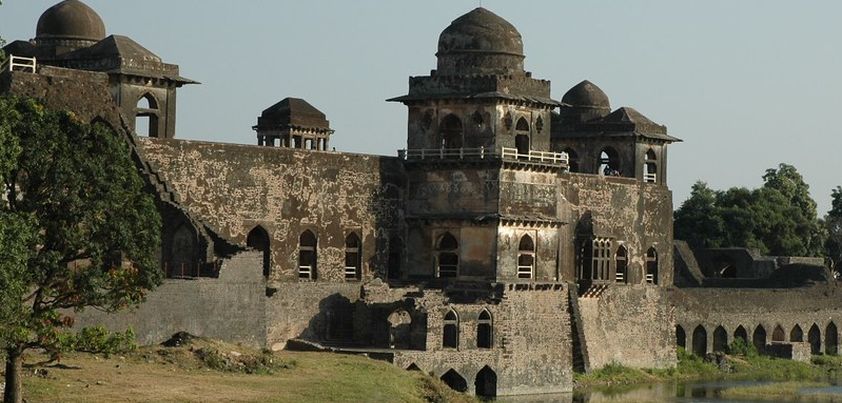 The central theme of this story by Rabindranath Tagore is the nature of truth (i.e. that our beliefs, experiences and circumstances tend to shape our perception of reality). A train passenger shares a story about the time he stayed alone in a deserted, seemingly haunted palace. According to local legend, those who slept there either disappeared or went mad. Unfortunately, the train arrives before he discloses the palace’s secret. The narrator dismisses the story as a fabrication. His companion, a theosophist who believes in the spirit world, disagrees. Other themes include the supernatural, greed and desire, fear, uncertainty. More…
The central theme of this story by Rabindranath Tagore is the nature of truth (i.e. that our beliefs, experiences and circumstances tend to shape our perception of reality). A train passenger shares a story about the time he stayed alone in a deserted, seemingly haunted palace. According to local legend, those who slept there either disappeared or went mad. Unfortunately, the train arrives before he discloses the palace’s secret. The narrator dismisses the story as a fabrication. His companion, a theosophist who believes in the spirit world, disagrees. Other themes include the supernatural, greed and desire, fear, uncertainty. More…
My Lord, the Baby / The Child’s Return
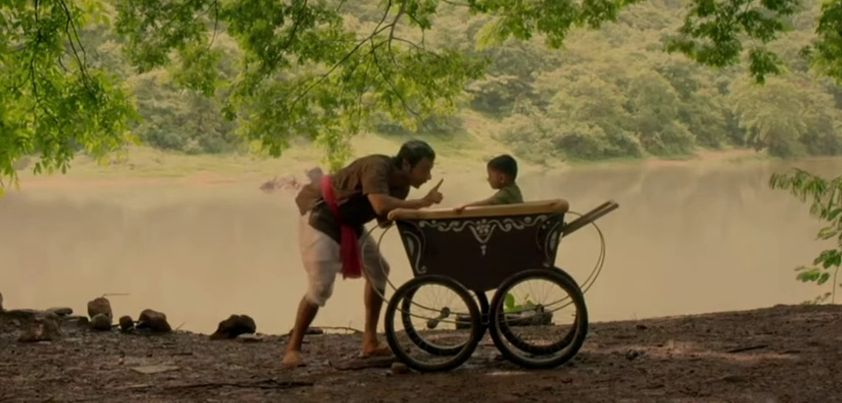 Major themes of this story by Rabindranath Tagore are duty, love and sacrifice. A young magistrate places the faithful servant who raised him in charge of his own son. After the boy disappears in a flood, the servant is discharged. Miraculously, he has a son of his own who he comes to believe is the lost boy reincarnate. He spends everything he has raising his son to the same standard as the dead boy and, when he becomes too old to work, “returns” the boy to the magistrate. Other themes include loss, guilt and redemption, ingratitude. More…
Major themes of this story by Rabindranath Tagore are duty, love and sacrifice. A young magistrate places the faithful servant who raised him in charge of his own son. After the boy disappears in a flood, the servant is discharged. Miraculously, he has a son of his own who he comes to believe is the lost boy reincarnate. He spends everything he has raising his son to the same standard as the dead boy and, when he becomes too old to work, “returns” the boy to the magistrate. Other themes include loss, guilt and redemption, ingratitude. More…
The Postmaster
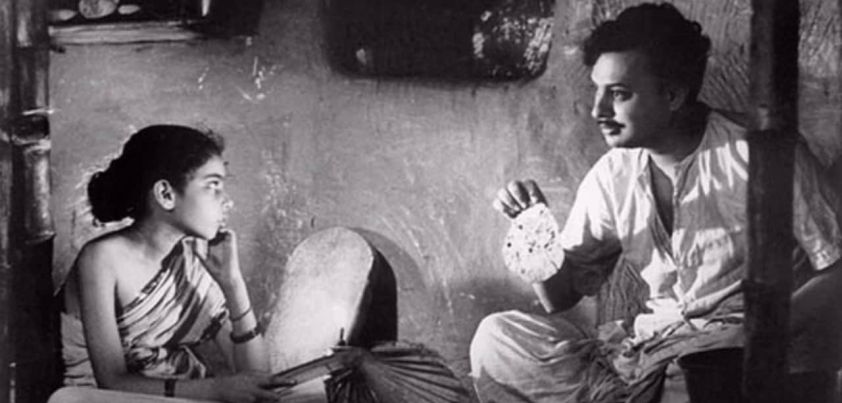 For me, the major theme of this Rabindranath Tagore story is the insensitivity towards others under India’s caste system. An inexperienced postal officer from a big city is sent to work in a remote rural village. He lives a lonely, isolated life because class differences and immaturity make it difficult for him to integrate into the local community. His only companion is his housekeeper, a young orphaned girl. The two develop a strong bond, which leaves the devoted girl shattered with her callous treatment when he decides to leave. Other themes: natural beauty, alienation, loneliness, memories, family, companionship, guilt. More…
For me, the major theme of this Rabindranath Tagore story is the insensitivity towards others under India’s caste system. An inexperienced postal officer from a big city is sent to work in a remote rural village. He lives a lonely, isolated life because class differences and immaturity make it difficult for him to integrate into the local community. His only companion is his housekeeper, a young orphaned girl. The two develop a strong bond, which leaves the devoted girl shattered with her callous treatment when he decides to leave. Other themes: natural beauty, alienation, loneliness, memories, family, companionship, guilt. More…
The Babus of Nayanjore
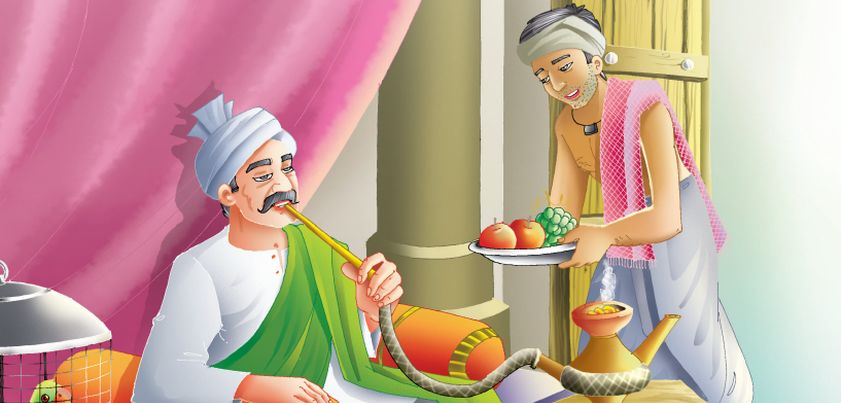 Major themes of this Rabindranath Tagore story are class, identity and hubris. Despite living in poverty, the last male descendent of a once wealthy Indian noble family maintains his aristocratic bearing. Most in the community humor the old man, treating him with kindness and respect. However his neighbor, the well-educated, excessively proud son of a working class man who became rich through hard work, looks down on him. The neighbor plays a cruel trick that backfires, finding himself part of the old man’s family and greatly boosting his self-esteem. Other themes include tradition, social change, extravagance vs. frugality, dignity, respect. More…
Major themes of this Rabindranath Tagore story are class, identity and hubris. Despite living in poverty, the last male descendent of a once wealthy Indian noble family maintains his aristocratic bearing. Most in the community humor the old man, treating him with kindness and respect. However his neighbor, the well-educated, excessively proud son of a working class man who became rich through hard work, looks down on him. The neighbor plays a cruel trick that backfires, finding himself part of the old man’s family and greatly boosting his self-esteem. Other themes include tradition, social change, extravagance vs. frugality, dignity, respect. More…
The Artist / Painter
 With over 100 to choose from, it was hard to decide where to start with the short stories of Bengali writer Rabindranath Tagore. In recognition of his mastery of so many fields, we have chosen this lesser-known story written in 1929. This was a year after Tagore took up painting (at age sixty-seven!) and went on to re-shape the Indian art world. The themes of the story reflect Tagore’s life: embrace your passions, and don’t let the criticism of others (such as the ‘connoisseurs’ who laughed at Rangalal) or worship of money (as demonstrated by Govinda) stand in your way. More…
With over 100 to choose from, it was hard to decide where to start with the short stories of Bengali writer Rabindranath Tagore. In recognition of his mastery of so many fields, we have chosen this lesser-known story written in 1929. This was a year after Tagore took up painting (at age sixty-seven!) and went on to re-shape the Indian art world. The themes of the story reflect Tagore’s life: embrace your passions, and don’t let the criticism of others (such as the ‘connoisseurs’ who laughed at Rangalal) or worship of money (as demonstrated by Govinda) stand in your way. More…